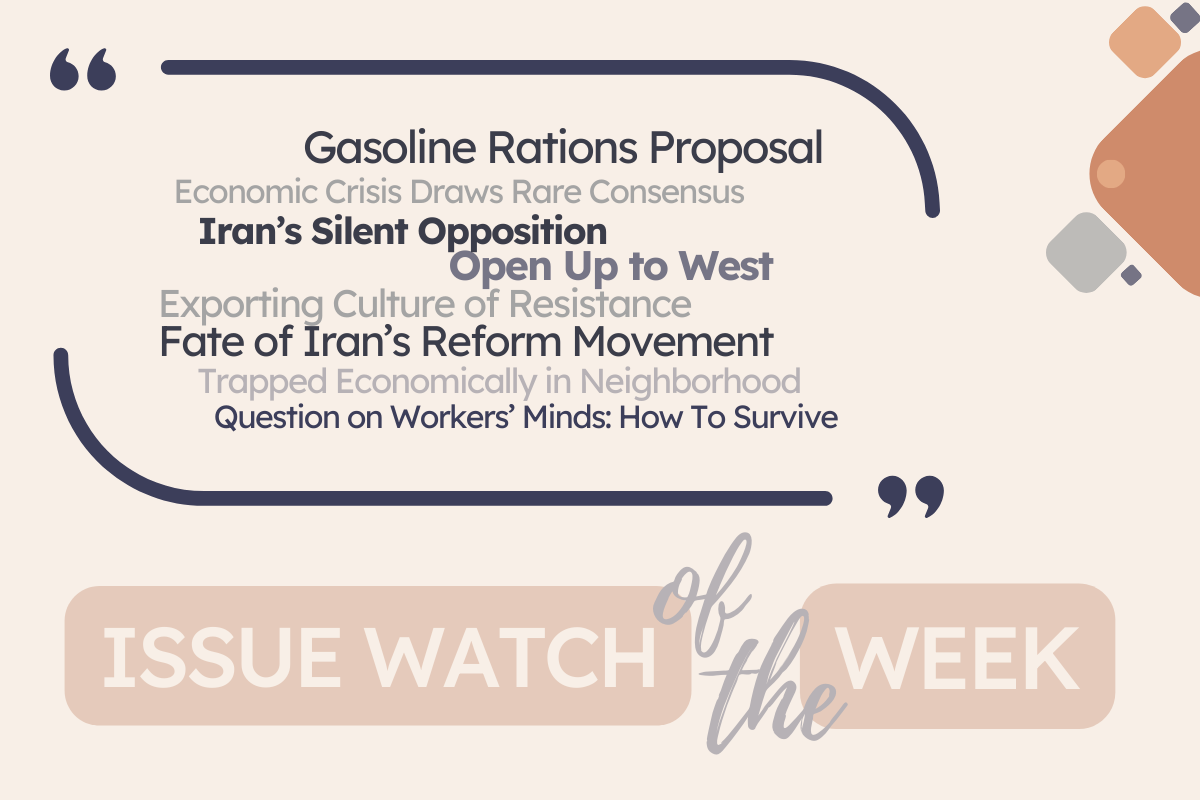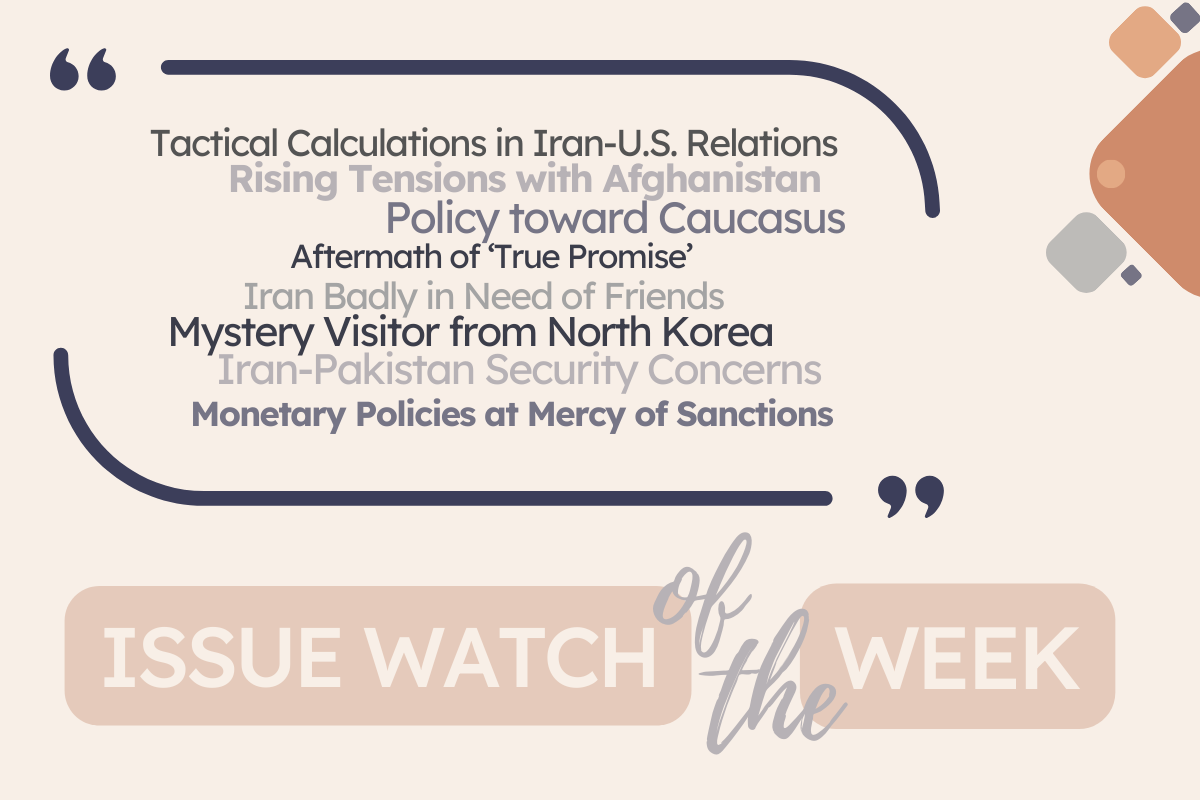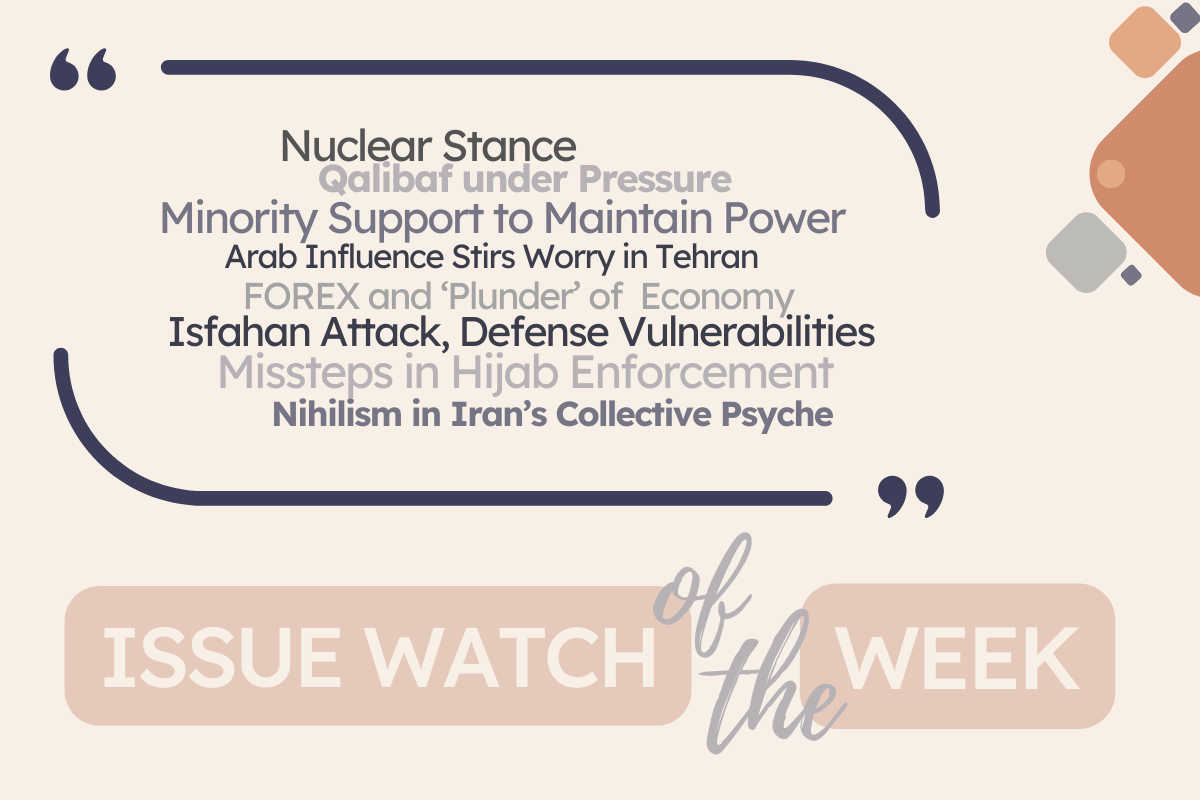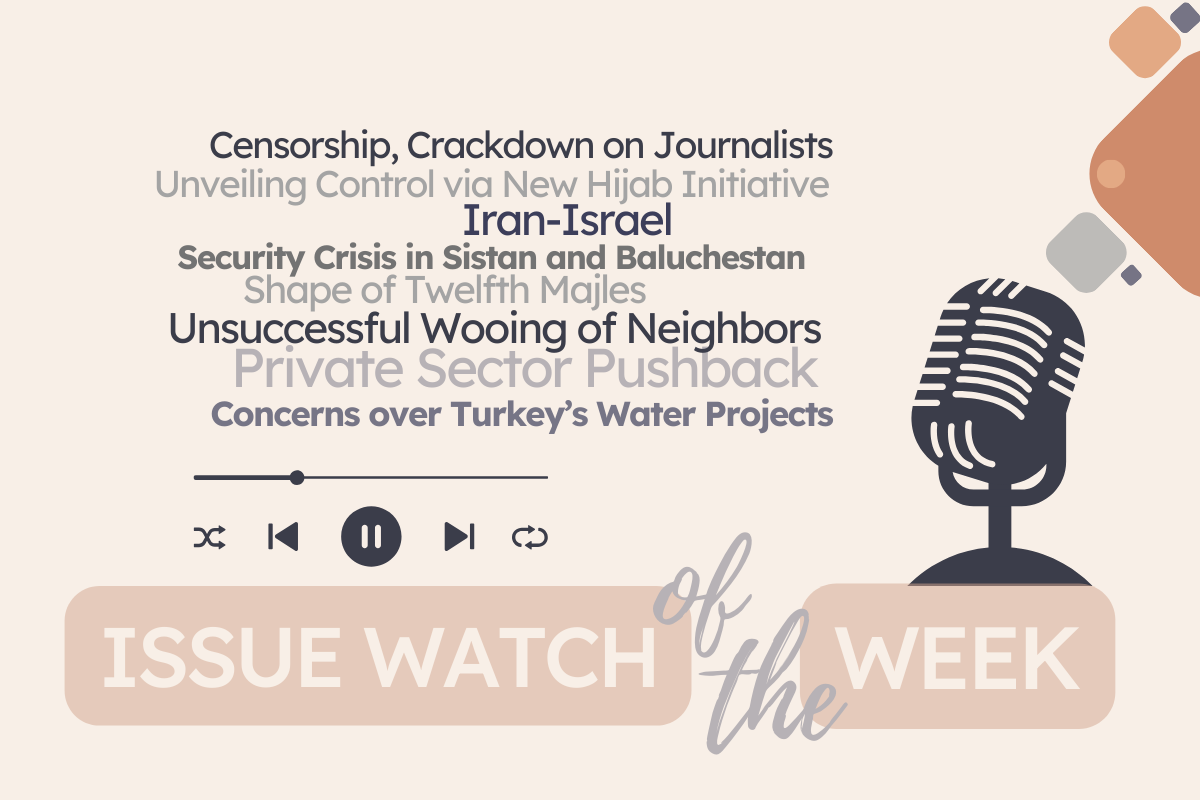Controversy over Equal Gasoline Rations Proposal:
Changes to the existing gasoline distribution rations and prices, deemed inevitable by many, are likely to spark discontent unless there is effective media persuasion to sway public opinion, conservatives argue. A new proposal, under review by MPs, the Majles Research Center, and government officials suggests assigning a subsidized gasoline quota to every citizen regardless of vehicle ownership. Pro-administration media outlets are expected to support this strategy, promoting it as a fair redistribution of resources across the population and a means of supporting the most vulnerable. However, the plan has already encountered criticism, with detractors questioning both its practicality and its purported fairness.
Economic Crisis Draws Rare Consensus from Divergent Voices:
The rare occurrence of common ground between prominent liberal economist Mas’ud Nili and the IRGC-affiliated media outlet Javan is a clear indicator of the severity of Iran’s economic woes. Despite their differing perspectives, both parties acknowledge the country’s poor economic conditions. Pointing to the entrenched political entities that have benefited from corrupt practices, Nili urges Iranian authorities to consider a range of strategies, including setting a definitive endpoint to the current passive approach. Although vague in its recommendations, Javan, for its part, emphasizes the need for actionable measures by the authorities, emphasizing that positive economic conditions are essential for ensuring the well-being of the nation and fostering an environment for the prioritization of religious considerations.
Nowruz at Pahlavi Palaces: Window into Iran’s Silent Opposition?:
Anecdotal evidence points to a surge in visits to Pahlavi palaces in Tehran during Nowruz holidays. Reporters have noted a palpable dissatisfaction with the Islamic Republic among visitors, discernible from their remarks during the tours. A hardline eulogist has expressed particular outrage at the visitors’ non-adherence to hijab, highlighting a clash of cultural and political sentiments. The significant turnout at Qeitaryyieh park in Tehran, set against the backdrop of heated debates over mosque construction, highlights the public’s engaged response. While low voter turnout in recent elections might have been interpreted as a sign of despair or apathy, the scale and nature of these gatherings offer a contrasting narrative. They reflect not only the public’s intention to communicate a clear message but also its willingness to engage actively with issues at hand.
Open Up to West:
Ali-Akbar Salehi, a former foreign minister and former head of the Atomic Energy Organization of Iran, offers a defense of Iran’s nuclear doctrine based on two pillars: achieving nuclear capability based on the NPT and rejecting nuclear weapons as a matter of principle. While boasting about the achievements of the Islamic Republic, Salehi calls for: 1) opening up to the West and embracing globalization; and 2) focusing on domestic growth and development in areas of human resources and research infrastructure. Salehi reiterates the message many foreign policy gurus have been echoing: unless Iran ends the nuclear stalemate, it will fall further behind other regional powers.
Exporting Culture of Resistance:
The five-hour-long radio program “Resistance without Borders,” airing from Tehran, discussed the future of the war in Gaza and the upcoming Quds Day (5 April). On 29 March, the guest of the program was Yadollah Javani, the IRGC deputy commander for political affairs, speaking about the resilience of Gaza’s 2 million Palestinians and the “certain” defeat of Israel through resistance. Two days later, Ali Rahmani, a representative of the supreme leader to universities, appeared on the broadcast and announced that foreign students studying in Iran were “exporting the culture of resistance” to other countries in the region and that universities in Iran were paving the way.
Fate of Iran’s Reform Movement:
Reformists were split on the recent parliamentary elections: leaders of the movement stayed home, but a few centrist-leaning factions engaged despondently to keep future political paths open, leading to speculation about an imminent split within the movement. Some say Mohammad Khatami’s absence offered an alternative strategy: aligning with the majority of the populace, engaging in clear, articulate, and transparent discourse, and adopting non-violence as a critique of both society and governing bodies. Having kept up criticism of the conservative establishment, non-engaged reformists are not going easy on those within their ranks who aligned with moderate conservatives. Without withdrawing from political activism altogether, these reformists are adamant about not acting as Nezam insiders, positioning themselves as something akin to internal opposition.
Park Repurposing Sparks Widespread Backlash:
Hardline Tehran mayor Alireza Zakani and the municipality are taking flak for plans to convert part of a cherished north Tehran park into a mosque. Given the profusion of mosques in the vicinity, Zakani’s authoritarian approach and disregard for public dissent—illustrated by his responses to this controversy and his deployment of hijab guardians in Tehran metro stations—have drawn widespread condemnation. A diverse group of detractors, including clerics, have come together to oppose misuse of authority for dubious purposes, often at the expense of religious values. Accusations have surfaced that the mosque might be a smokescreen for self-serving and financial agendas. Nevertheless, Zakani’s steadfast commitment to his hardline base highlights his dedication to his political agenda, bolstering his standing among supporters despite the backlash.
Year of Domestic Defense Innovation:
Iran’s military and defense advancements have made significant headlines both domestically and internationally over the past Persian year. Iranian media underscore the critical role of military power in shaping the country’s political diplomacy, branding it as the foundation of diplomatic and defense strength. This suggests that the Nezam considers enhancements in military capabilities as key to bolstering Iran’s status in global forums. In what seems to be an attempt to mollify public opinion, such reports highlight the readiness of the armed forces, including the IRGC, to extend their services beyond military and defense improvements in times of crisis, such as during natural disasters or emergencies. According to the Iranian defense minister, the country is meeting approximately 90 percent of its weaponry needs through domestic production, with the value exceeding 24 trillion tumans in the last year alone. Supreme leader’s production goals? Check.
Question on Workers’ Minds: How To Survive:
The Ra’isi administration’s unilateral decision about the cost-of-living adjustment, which leaves blue-collar workers and their families below the poverty line, has drawn criticism from workers, labor union representatives, and even lawmakers. Labor unions have started an online campaign against the minister of labor, collecting signatures for his impeachment. Other labor issues included unpaid and delayed wages, leading to calls for the dismissal of the CEO of the national railroad. The core issue, however, is the government’s unilateral decision to disregard the constitutionally mandated requirement of bringing wages in line with inflation. How are workers to survive, they ask, when the 35-percent increase is still 40 percent short of minimum subsistence?
Iran Trapped Economically in Neighborhood:
The Ra’isi administration’s dodging of U.S. sanctions through “neighborly” relations is not working, with neighbors showing in practice that trade relations between them and the Islamic Republic depend on the say-so of the U.S. Businessman Hosein Selahvarzi, ousted as president of the Iran Chamber of Commerce by the administration, has reiterated the effectiveness of the sanctions on Iran’s non-petroleum exports to Iraq and Afghanistan, which continued to fall throughout 1402. An energy analyst points to Iraq’s advantage vis-à-vis Iran in the energy sector, which is the absence of restrictions. Turkey is also capitalizing on the opportunity to supplant Iran as Iraq’s provider of agricultural produce. Nor will Pakistan proceed with the gas pipeline project to supply Iranian gas to its eastern neighbor because the U.S. will “withhold support” from the project.







